

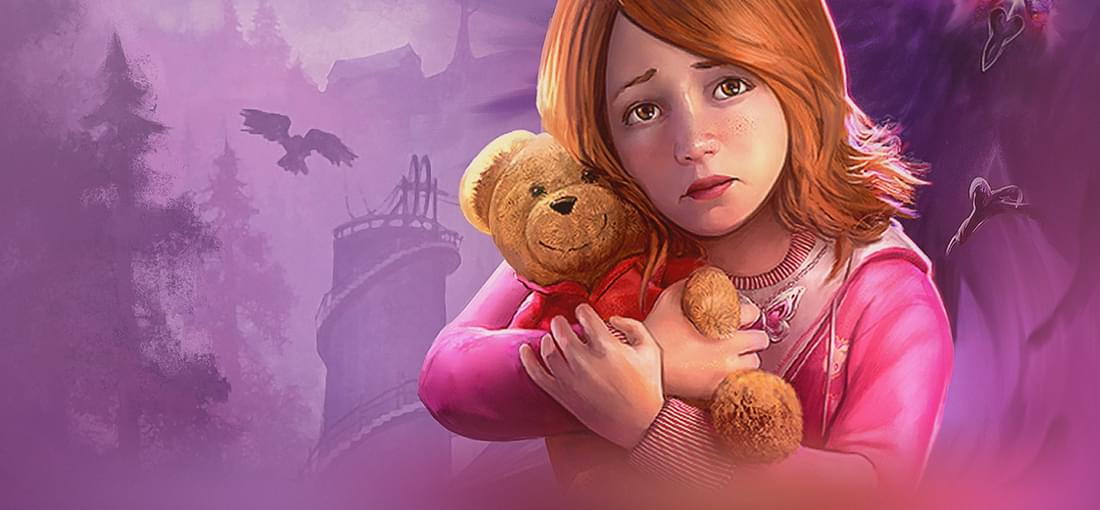
Another evening with a friend and the second Enigmatis game in a trilogy completed. To start off let me make it clear that the sequel follows the original in most regards: staying strong where the latter was, but also repeating its predecessor's weak points as far as I'm concerned. The visuals are still very nice; kept is a style similar to the original, they look even better at times, perhaps due to the knowledge there are supernatural elements at play from the get-go, which allows the scenery to be more... lively, so to speak. Either way, visuals remain the game's strongest point for me. The story has a similar problem to the original: it starts nicely, but quickly the mystery is gone are rather than uncovering the truth, you're just working to complete further objectives. There's no 'who' or 'why', but rather 'how': how do I get inside... where do I find what I need... how do I grab that item. It's not about some grand mystery, but just progression through the game, which I think is a wasted potential, especially given the location of the game. Coupled with predictability, it just isn't what it could've been. The riddles feel a bit more chellenging than in the original and crossing items off the list is also tweaked to the point that you sometimes need to collect one item to use in finding another, which adds a bit to the gameplay of "object piles" that you have to get through to complete the game. These piles still feel rather random, but that can't be helped. A bit on the annoying side is that about 80% of times the item you need to progress is usually in the same location or not particularly far, which felt a tad uninspired. But the riddles do seem less obvious than in the original, so there's always that. Overall it's a good sequel; if you liked the original, there's a high chance you'll like this one as well. It did keep me interested throughout most of the playthrough, but - much like the first game - it isn't a title I'm likely to replay.
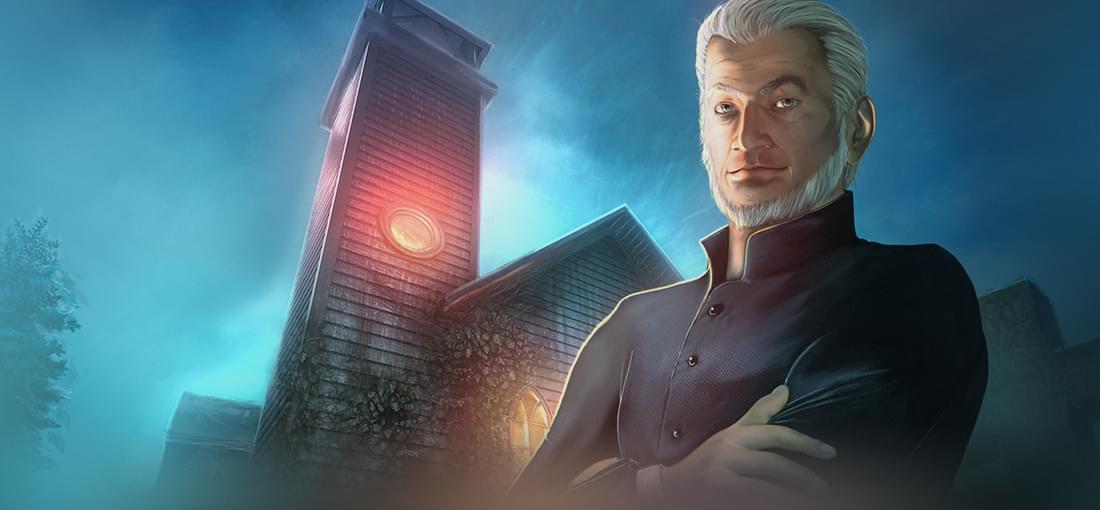
I was never a huge fan of adventure games as their replay value was never praticularly high in my book. But a friend of mine bought Enigmatis and invited me for an evening playthrough so I decided to give it a shot. Let me start with the fact that the visuals within the game are really nice; dunno if that's a standard for the genre, but I certainly liked the art style and the overall look of locations. The story has its strong points; the beginning is great as you start out as a detective with amnesia who was investigating a girl disappearance in Maple Creek, a small town in Vermont, USA. To jug your memory you travel through the empty town, which seclusion brings an eerie feeling, creating a great atmosphere for the story. Sadly, about halfway through (when you uncover the most crucial details) it kinda goes downhill on account that suspense is mostly gone; the mystery is basically solved and you just proceed to complete the game. And completing it isn't particularly hard; my friend and I managed in just one evening, roughly 4-5 hours. The challenge is mostly in finding the objects (as the genre name implies); you still need to know where to use them, but whenever you click on an obstacle, the game tells you quite clearly what it is that you need to proceed... seriously about 90% of time whenever we picked an item, we already knew exactly where to use it. It doesn't help that some progression feels random as spots where you search from the next object activate only at certain points in the story; there's no way for you to know when unless you check the map which tells you where there is something for you to do at the point of the game you're at. The music blends rather well with the story to the point I often didn't even notice it; given the theme of the game, I'd say that's a plus, especially if you want to play it in the evening which is what I would recommand, due to the atmosphere the game tries to create. Overall: if you like HOG, it's a decent choice.
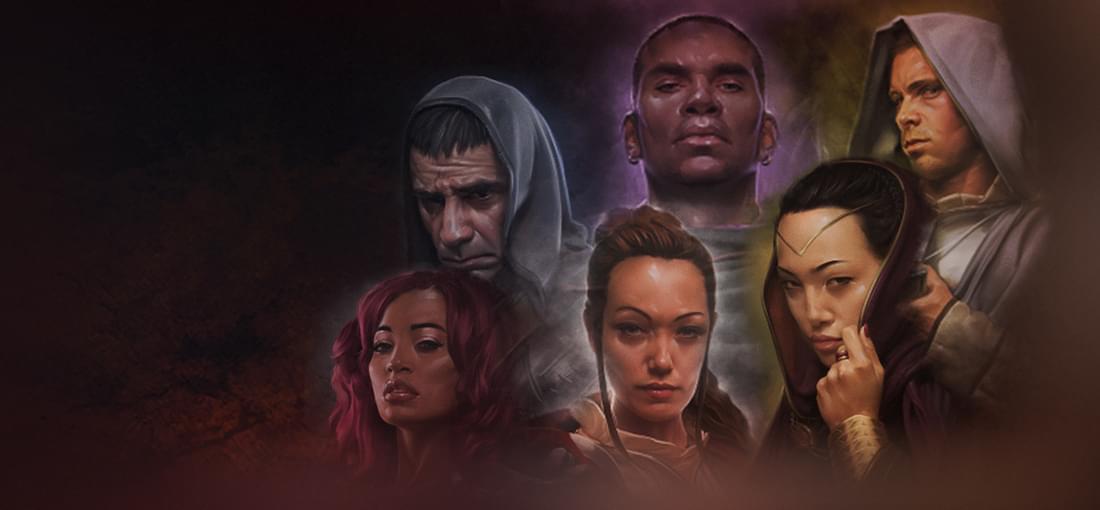
Seriously, I rarely get a chance to write PURELY a negative review as I strive to find value in anything, but this is a rare case when there really isn't ANYTHING good to say about a product nor is there much to say to begin with. This DLC offers you preciously what is written: 6 character portraits. That is LITERALLY it. You pay over 2$ for SIX portraits... and, just for the record, they seem kinda off compared to the style of portraits in the original game, so their design just ISN'T adjusted in any way for the game's artistic choices. If you google yourself "Baldur's Gate portraits" you'll get HUNDREDS of portaits and while a great deal of them isn't in the art style of the game either (or just they aren't very good), there are gems among them... I myself have came across about FIFTY that I liked and found going well with other portaits that I've downloaded them to us in the game. FIFTY, FREE and MORE MATCHING THE GAME portraits than Beamdog is offering to you for a FEE. Now I am not negative towards BG:EE; it's nothing special compared to the original game, but I don't exactly subscribe to the crucification it gets, but THIS is an insult... in EVERY sense of the word; a shameless money grab that, in my opinion, only people not exactly right in the head would go for... or those that have too much money to begin with. If I could, I would not give this a single star, but sadly GOG has no such option.
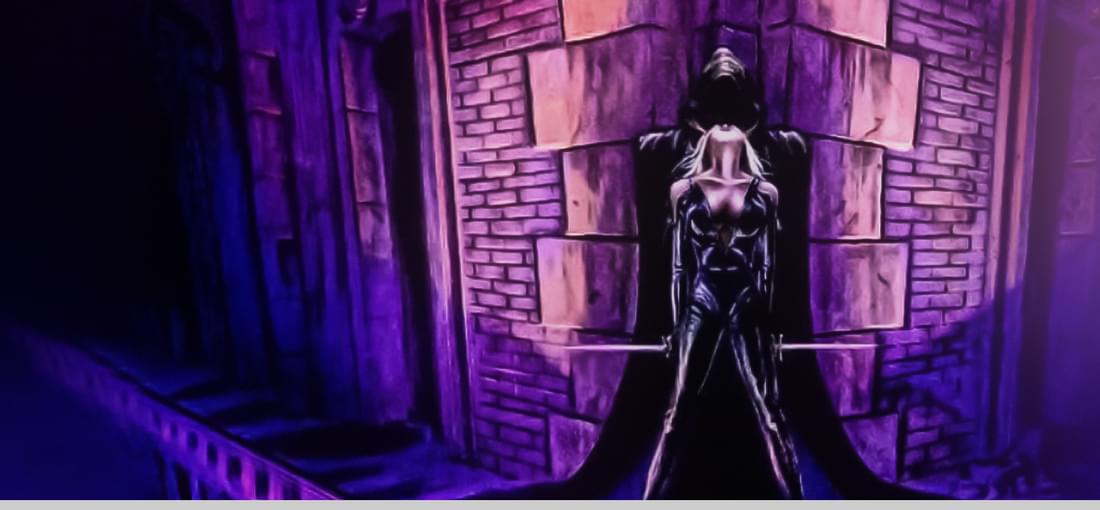
MINOR SPOILERS INCLUDED. As a rule I don't play adventure games more than once, because commonly there's little point... and click (:D): when you know the answers to puzzles, there's no challenge, the story is generally the same and so on. Few of these games present the world wonderfully enough to inspire "another go", at least at first ("Machinarium" comes to mind), but even if I really like the game itself, I rarely return to titles in this genre. "Noctropolis" is a weird mix: on one hand it has TREMENDOUS potential (especially during today's hype for superhero fiction): the intro shows your avatar reading old "Darksheer" comics, setting the mood and characters of the story that's about to unfold. The premise is simple - you're sucked into the world of the comic (think "Toonstruck"), Noctropolis and become the new Darksheer when the original protector of the city decides to retire. An unusual concept for an adventure game (which are commonly less dynamic), so if you like superhero genre, you're probably sold. In the meantime a mysterious figure gathers a group of supervillains to terrorize the city and, by all accounts, your mission will be to stop them... and this is where the good, first impression takes a devestating blow. Quite honestly, there isn't really a set goal for the whole adventure - sure, bad guys are loose but you're never directly told that you have to stop them and, in fact, when the game ends many of these villains are STILL on the loose. Add to it that, for a substitute hero, you don't really defeat any of the villains you encounter (with one, clear exception) and the whole premise of the game being a superhero genre is practically tossed out the window. The game DOESN'T wrap its own story (and its ending is rather disapointing too). The puzzles are rarely hard and, quite often, they're just so painfully simple that you don't feel like you really achieved anything by completing them nor the game itself. The background graphics are good and set the tone of the story well, but story itself is very lacking with little "cause and effect" mechanics actually implemented; a feeling that the game is just a bunch of episodes tied together by characters only is not unusual for "Noctropolis". Yes, there is nudity in the game - literally a single scene of it by my recollection and the fact that, throughout the game, you run into two females designed to be sexy (Stilleto and Succubus), one of which will be your sidekick for most of the game. All of this is sad because most of the villains had potential to be very interesting and I wouldn't mind seeing a superhero who defeats enemies with his wit and brains rather than brawns. Sadly most characters are not elaborated on at all and, as I mentioned, you don't really get to defeat the villains. It's fun to experience "Noctropolis" for the sake of the atmosphere, but frankly I think watching a playthrough video will suffice for that - adventure game fans will probably be dissatisfied with rather easy riddles and the story just isn't solid enough to care the game. I'm sorry; I really wish I could claim "Noctropolis" to be a great game, but I just don't think that it is.
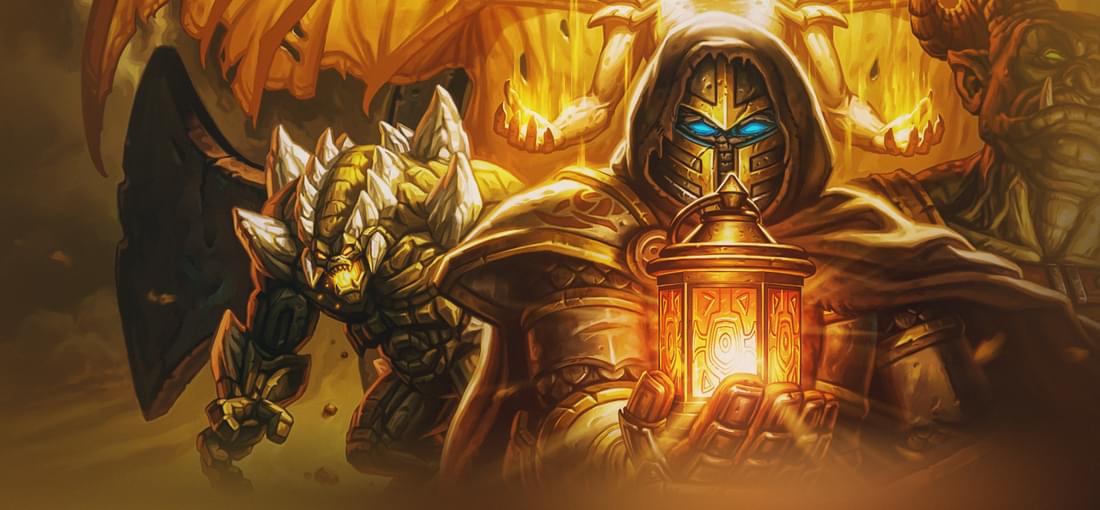
Those of you who read some of my, other reviews on this site may remember that I have three determinants that decide whether I consider a game RPG or just something that uses the term within their genre. In my opinion, for a game to be RIGHTFULLY called RPG, each of the following requirements must be met: I must have the option to shape my own character... not necessary through character creation, but at least by choices made within the game; Speaking of choices, I do expect an RPG to allow me those – I want to have different ways to handle various obstacles and I would want them to provide ACTUAL consequences, rather than just cosmetics; From an RPG I also demand AT LEAST decent writing, both story and NPC-wise. These three requirements allowed me to easily determine if a game I was playing was an actual RPG or just something that aspired to be one. To that end I never considered so-called JRPGies and hack&slash titles as RPG, because they (majority of times) are linear and give no, real freedom in shaping your character and while not necessary bad games, I commonly enjoy them considerably less than actual RPGies. Thus, using those three determinants, was helpful whenever I approached a new title... until I played Ember. See, I can't claim “Ember” to be an actual RPG by my own definition, but it is also much more than a mindless hack&slash or over-simplified JRPG (understand that these descriptions does not apply to all games within these genres). But lets start at the beginning... and in the beginning there was the game's main menu... Once in main menu, you choose “new game” and, surprisingly, the game begins :D And it is than that the first “disappointment” appears: there's no character creation. You are given a default portrait of your character, the ability to change his name from “Lightbringer” (a pointless exercise as your name isn't used ONCE within the game – you are always referred to as “Lightbringer”) and choose the game's difficulty... and that's it. I was not about to get discouraged by this fact though; many cRPGies make character creation scarce or non-existent even, yet turn out strong (“Planescape: Torment” or “The Witcher” comes to mind, but also “Mass Effect” set many limits to character creation). So I get through this part and I'm welcomed with the story's intro. I gotta say the opening movie is AMAZING! Composed of still-shots, it shows the graphics and artistic style that will accompany you throughout the game. Visually it looks truly incredible with sharp details, further enhanced by bright elements – it is something of “Ember” staple. The intro itself provides you a little background to the world and story that's about to unfold and I must admit that it certainly kept me interested after an initial dismal. Once the game officially starts, you see a scene where a less than adequate mage performs a ritual that, apparently, brings you back to life... my mind immediately went to “Planescape: Torment” and “Revenant” at this (particularly the latter is of consequence to this review). The mage, Coren, quickly gives you some information, but he's unwilling to depart any details, insisting that you speak with his master, Syrma instead. This earned my reserve – here I am “recruited” to help save the world, yet they expect me to travel a fair distance just to learn what is expected of me? Felt that this is going to be one of those games where I am to do something just because the creators want it that way, rather than it making actual sense. Luckily, Coren's reluctance actually HAS an explanation, revealed a bit further in the game... whether you find it acceptable or not is your call, but I was relieved there was a reason behind this approach. So anyway you find yourself in the Burrows and first order of business is to get out. Sadly, the crypts are currently overrun by thieves and spiders and so Coren purposed to provide you with a weapon, the choice of which also determines your “class”. These “classes” correspond to the most simplified and wide-spread classes with any game claiming to be an RPG: you can pick a sword for a melee warrior, a bow for a ranged fighter or wand for a mage. Know, however, that these “classes” aren't set and work more similarly to how “Dungeon Siege” approach the matter; see, each character has 4 statistics that determine your play style – Strength decided how hard you hit in melee and also your durability against physical attacks. This is important for team tanks who will fight in close quarters. Dexterity provides more damage in ranged, physical combat as well as enhances your chance of a critical hit. Intellect decides magical damage you inflict and your resistance to it and finally there's Vitality, that extends your health. You may start out as a mage, but nothing stands in your way to switch into a warrior later, only be aware that your stats will leave you struggling for a time. Aside from those four there's also health (basically your hit points) and energy (an equivalent for “mana”, only in “Ember” it relates to ALL special abilities that are granted through equipment). Being a guy who commonly prefers “up close and personal” approach, I chose sword and began my journey. Coren joined my party as the first companion (he is a fighter btw, so you can feel free to pick whichever “class” you want as Coren will do decently as the necessary tank for the squad) and very soon I found the game's next “issue” and that it general looting and movement. See, while the graphics within the game as stunning (and music is, equally, very well selected to each area, invoking just the right feel), there's NOTHING that indicates with what of its elements you can actually interact with, unless you're REALLY close to them. To that end you can't really tell which crypts in the Burrows you can actually loot and which you cannot. This also makes gathering spoils after battle tedious as well. In the game options you can, supposedly, arrange the game to help with this but either I did not understand it fully or it simply doesn't work. Regardless, this part of the gameplay is somewhat annoying. Further party management fairs little better, mostly on account of equally annoying pathfinding, which can be a real horror during battle. See, combat is done in real time, but with an option to pause the game. This SHOULD allow for a tactical approach, but honestly there is little point of trying to do that: even if you get close to an archer you don't actually stop them from firing arrows or hinder the damage they deal in any way (at least I haven't noticed something like this) nor can you stop a mage from casting a spell by hitting them. Add to it that your party members have an infuriating habit of taking a “scenic route” to the currently targeted enemy and even with an active pause the battlefield is pretty chaotic and you're better off just allowing your team to switch between opponents automatically while you concentrate on special abilities and healing. This might also be a good time to write more about the last two: see, there is dodging and parrying in the game, but since you need to concentrate on Strength and Vitality for your melee fighters, they don't do much of either... because of this, your hand-to-hand warriors will ALWAYS end up receiving some damage in a skirmish... this is particularly annoying at the beginning of the game, where you go through health-restoring items like crazy, just to avoid resting after each battle. And, aside from potions, neither item can be used in battle, so unless you stock-up on health potions, you're quite likely to camp out often until reaching higher levels (than it gets better). Special abilities fair no better: now these abilities are granted via equipment (there are 6 types: headgear, armor, weapon, shield, rings and amulets). All abilities have a primary statistic that determines its effectiveness, but they are commonly related to the gear you currently have equipped, so if you stick with items that are related to your “class”, chances are you'll have this stat at a decent level. Area of effect abilities are not an issue, but whenever an ability requires a specific target (like healing a single character) the problems start – in a battle with many enemies, even with an active pause actually pinpointing the character you wish to “hit” with the ability can be annoying... if you consider that, in certain battles, constant healing is unavoidable, it makes up for a rather discouraging combo. Further still the usage of all special abilities is determined by your energy, but here's the kicker: you energy level is CONSTANT! Yes, you can extend it slightly with some gear, but as a rule it is set on the value 100 and equipment rarely provide more than 10 extra. Even worse is that items meant to renew your energy do so by RIDICULOUSLY small amount (my melee warriors, after drinking a POTION specifically meant to regain energy, retrieved 5 and mages don't seem to fair better... granted it was a 'lesser energy potion', but still... ale and wine renewed even less, making carrying them around literally POINTLESS). With that, colorful bit of gameplay out of the way, let us continue our journey; once I've managed to exit the Burrows, I was pleasantly surprised that, despite having a relatively clear destination, the game does allow free-roaming for the most part. Note that enemies aren't scaled to your current level so entering an area with difficult adversaries would require you to either avoid combat or retreat, but you do have the option to go where you like, which is a plus in my book. The first area after Burrows also shows that, aside from the main story, you have optional quests spread throughout the game. Most of them have the complexity of “fetch quests” were just grabbing an item or speaking to someone moves the task forward, but “Ember” did provide gamers with a relative variety of these: sometimes you need to exterminate something, deliver a message, activate an artifact, find item... nothing REALLY complex, but you won't get bored either. Sadly the main questline looks a bit less appealing; don't misunderstand it does provide greater variety than just “go there and kill”, but essentially you may feel otherwise as more often than not you're not given REAL choice in handling the tasks; more often than not the game provides you with the option to either deal with the obstacle “the right way” or outright slaughtering all who oppose you, but the latter isn't always true; for example there is a part in the main quest where you need to obtain a certain artifact from a prominent figure. Now in order to convince that person to give you the item you can either help them resolve a certain matter or decide to kill them, but the second option doesn't seem possible at your current level (I actually tried it for curiosity and 10 seconds into the fight my two melee fighters were already heavily wounded, while I've done relatively little damage to my main adversary). Perhaps it can be done, but at this point I highly doubt it. The lack of choice is strengthen by the fact that about 90% (if not more) conversations you initiate come down to just two responses from your avatar: you can either pick the option that moves the dialogue forward or the one that is equivalent to Commander Shepard's “I should go”. There's no reputation in the game, the NPCs approach to you don't seem to be in any way affected by your actions, so these instances are more like cutscenes rather than actual “forks in the road”. Occasionally you can complete a quest (main or otherwise) in one of two ways, but again this makes no, actual difference to the plot – you'll always get from point A to B with the exact same status... by default the only difference is that sometimes characters who wouldn't play any part in the story later on will be dead. And, since I've gotten to the plot, it's worth to sacrifice a little space to it; the main story is a relatively straightforward one: the world is in peril and you're the only one who can save it. The general concept has been so drastically overused in RPGies in any form, that I'm no longer surprised even. But how the story evolves fairs a bit better – yes, you commonly just go from one place to another, doing whatever needs to be done AT THAT TIME to push you forward and you're given little information regarding the point of your current task in the greater scheme of things, but details of the plot and your characters do set it apart from the basic “Diablo-like” tales. This is the level I would wish “Revenant” story kept throughout its entire game and while it is NOT on the level of “Planescape: Torment” or even any of the “Baldur's Gate” entries, I did find it engrossing. A separate paragraph goes to the game's setting; say what you will, but “Ember” gives you a VERY well-crafted world. Domus (as this world is called) has rich history, geography, rules and denizens that rival virtually ANY in-game universe that paid attention to details I've come across... heck, I'm willing to claim that even “Mass Effect” or “Tyranny” have nothing on “Ember” in that regard! The “Three Races”, despite being inspired by the most cliché species in fantasy (humans, elves and dwarves) have their unique spin that differs them from how they're commonly presented in fiction (elves in particular)... an there are more fantasy tribes roaming Domus, each with their distinct culture, rituals and history. The world's history is crafted in detail, providing several key events that helped shape Domus into the land it is today – every race has its past... every major place its story... every connection between species its reason! Studying all of it is an adventure on its own. Some of these details you learn from conversations, but if you want a full scope of the setting you'll need to read books that are scattered across the game and again I feel the need to point out that those are REALLY worth the read. Now, “Tyranny” was dry with presenting its lore... “Mass Effect” did a good job with its codex entries to allow gamers to get familiar with the universe... but “Ember” really shines (heh, pun :D) in comparison – the many tomes you find within the game are history books, articles by famous writers or short novels that are merely set in the world of Domus. ALL of these were a surprisingly interesting read for me... now, if you bothered to read books in “Baldur's Gate” series, let me tell you that “Ember” is LEAGUES above: books always provide you with a fictional writer here and each of the names have their own, unique style which can be felt in the text; a rather elitist, elvish writer is easily distinguishable from Bombus, a dwarven historian. I can't tell you how anxious I was to find the next volume of “Gabriel and Mara” story, once I was done reading the first, two entries! Truly I spent many hours of my game time simple sucking in “Ember's” literature and if you're the type that enjoys getting familiar with the universe's lore, I highly urge you read books in the game too. Back to the gameplay itself there is one, last things to mention; as you probably know “Ember” is a party-based RPG... at any time your team can consist of up to three people – yourself (the Lightbringer) and two NPC. Your new companions are often far in between of being introduced, so it will take a pretty decent while before you'll manage to “collect” representatives of all, three “classes” within the game. These NPCs have their own personalities, but sadly they're presented in a fashion similar to the first “Baldur's Gate”: aside from their battle cries and occasional dialogue at SET moments in the main story, they are your average follows with no mind of their own... and it is a shame. I recall how disappointed I was that ever-pessimistic Xan, flirtatious Safana, adventurous Coran or mad Xzar didn't make it to “Baldur's Gate 2” as companions so that we could learn more about them. “Ember”, sadly, gives little about its NPCs too... you can't converse with them outside planned moments and they do seem like an interesting bunch. Considering how well N-Fusion managed the game setting, I would expect more details regarding these character would be a hoot too. What I thought of the game? Now that is a hard question... as a hardcore RPG fan, I commonly find it insulting that games which DON'T meet all my, three requirements claim to be a role-playing experience. “Ember” falls short on AT LEAST two of these... its gameplay mechanics has issues, some of which are pretty frustrating or require much getting used to. The relative linearity of the plot and the fact your avatar is, basically, a pre-programmed robot... quite a bit of flaws indeed. And yet, despite all of the above, I've found myself enjoying the game. Maybe the writer in my is just impressed with the attention to detail in crafting the setting... maybe it's stunning visuals that catch my eye... maybe the sheer simplicity that is a change from the usually complex RPGies that I play... I cannot say, but I do know that so far I'm happy with the journey. Granted I haven't completed the game yet (I imagine I'm about “halfway there” as of this writing), but if nothing else “Ember” is consistent with its quality and I'm anxious to thoroughly explore areas which I haven't visited yet. Should you buy it? Well, “Ember” walks the line between your usual RPG and hack&slash. The game's system is decisively that of a “Diablo” clone and elements of “actual RPG” are IMMESIVELY simplified, but if you're a hack&slash fan who wants something more than mindless killing (think the first half of “Revenant”), you might wanna give “Ember” a try. If you're a hardcore RPG fan, than “Ember” simplicity may be somewhat off-putting, but I think it's an enjoyable ride non-the-less... in worst-case scenario, it's a “breather” between heavy RPG titles and its universum is second-to-none in terms of detail, so there's always that ;)
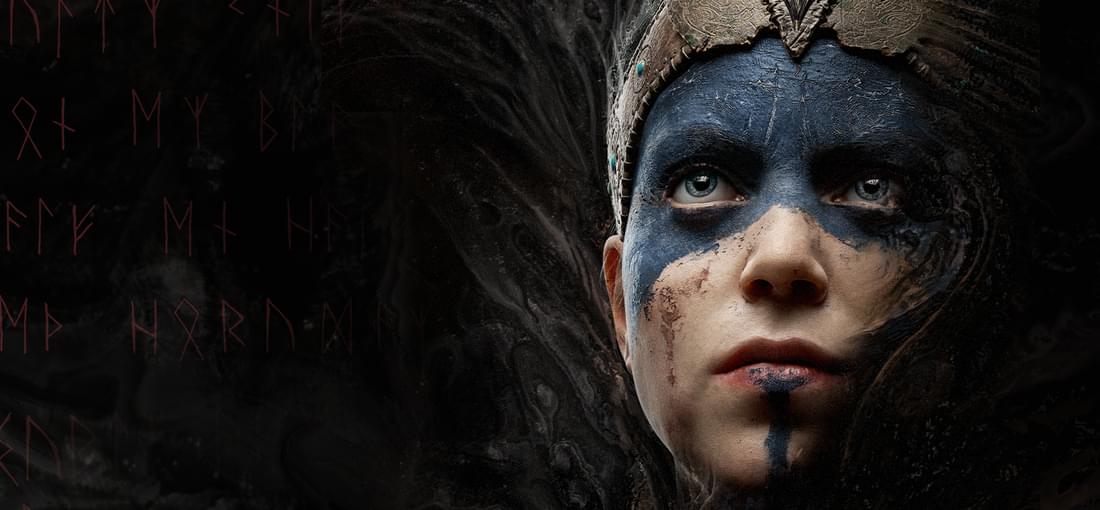
I really don't get the high praise this "game" gets. It has some good elements, sure, but none that are particularly important for a game. It has incredible graphics, no argument there - the setting is beautiful and climatic, very fitting for the story and suggestive as well. Truly a sight to marvel and i can't help but wonder if that alone isn't what convinced players that it's something great... because aside from that, any other element is mediocre at best. The story, that is supposed to be Hellblade's main strength, is only okay. Yes, the psychosis of the main character is relatively unique in terms of story telling, but there were games touching upon such themes ("Sanitarium" for one). True, it's presented splendidly with voices constantly there, but let me tell you - while I understand why they are ALWAYS there, as a player, it gets very tiring fast. The biggest flaw is that, for a game, it pretty much fails at gameplay entirely. Much of the time spent playing (and, by the way, the game can be completed in 6-7 hours... including "restarts") is a walking simulator where you go in a linear fashion from point A to B, sometimes climbing or "crawling", but generally with no entertainment along the way aside from the voices that travel with you. You get to fight enemies, but this is done in a fashion not dissimilar to JRPGies and hack&slash titles, taking all the worst from the two and not much good - when you do run into an enemy, Senua enters combat mode; this is done automatically, just like exiting it. This means you draw steel ONLY when the game wants you to and you always know that the fight begins or that is over - there's no suspense to it really. The enemies consist of just few types, most of them not challenging at all and the fighting mechanics come down to simply pressing attack button with occasional dodge. Senua doesn't seem to have any really set of skill outside of her basic combo, neither do her enemies. Considering they attack in mobs, commonly one adversary, than the second and so on, you're basically feel bored by the time third one hits the dust. Puzzles are also uninspired and seem to be here just to extend the game time - most of them come down to finding certain shapes... this is horrid in that you do this constantly, the exact same shape several times in a row (seriously) and the puzzles rarely stray from this formula. It also makes little sense that just SEEING the shape opens the gate. Are you actually telling me that GODS are so stupid to put the exact same obstacle on the traveler's path, hoping that the fifth time they're faced with the same problem, they'll somehow fail? Do they know the most universal definition of "stupidity"? The game draws heavily from Norse mythology and is surprisingly accurate in this representation... thus it is sad that the presentation is also pretty boring, sometimes lost in the noise of Senua's head. The story, while intriguing, quickly grows tedious like the gameplay, because it moves along at a turtle's pace - for all its 6 hour execution, actually moments that push it forward takes place hours apart! Honestly, by the time my first hour of playing was up, I was LITERALLY falling asleep before the monitor! And, with its linear nature, "Hellblade" has no replay value whatsoever. The "game" might've made a decent movie, the unique elements of the plot could keep the viewers entertained, but it fails SPECTACULARY as a game, giving players little to actually do that could keep them entertained. If they wanted a movie, they'd go to the cinema, not buy a GAME! Now "Masquerade" put great emphasis on story too, was linear to the core, but players had things to do there. JRPGies commonly are the same with each playthrough, but again players are given stuff to do there. Hellblade just doesn't really deliver on this. Sorry, but I just cannot support the claim that this "game" is great.
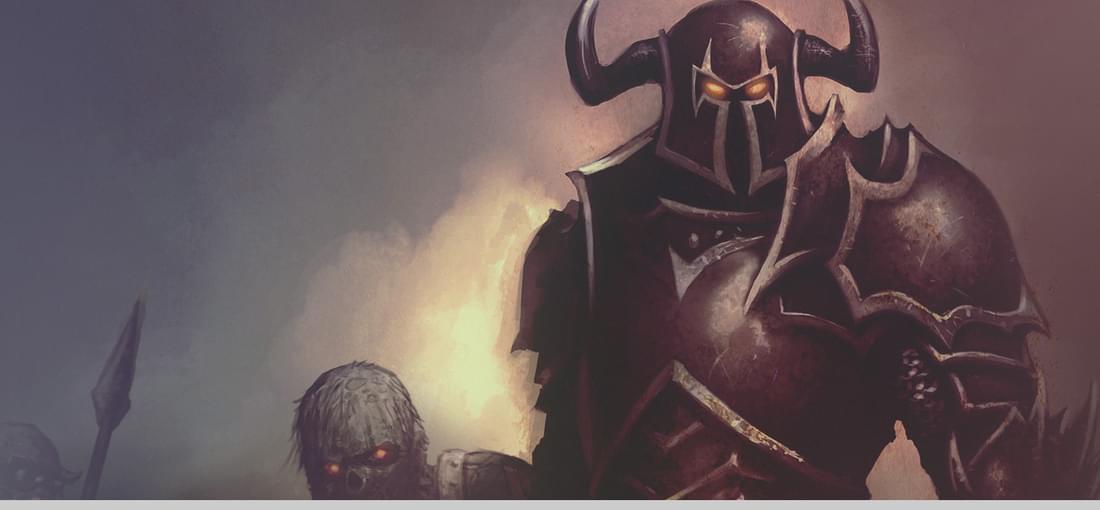
Regardless to what you might think of the original, "Baldur's Gate" deserves its place in history - the game that re-ignited the RPG genre on PC and became the pinnacle against which many games of the genre has been judge was (and still is) a gem to RPG fans. True, first instalment in the series may not have aged particularly well (much like Star Wars its initial success came from the absence of anything like it at the time), it still holds much value as a gaming experience none the less. BG was a party-based RPG where the player created his own character and formed a team with various, recruitable NPCs to uncover a great conspiracy and find his/hers place in the world. The second game improved on nearly all aspects of its predecessor (only some "cosmetics" I find being done poorer in BG2 in comparison), making this series a classic. There is no dening though that, graphic or writing-wise the game has aged. Beamdog made an effort to renew this legendary title, possibly encouraged by the sudden re-emergence of the "old school cRPG" aesthetics such as "Pillars of Eternity" or "Tyranny", to name just a few. Not sure if their goal was actual love for the series or a shameless money grab, but dependable on what you wanna judge, BG:EE is either a "worthy game" or "needless enhancement". The changes to the ACTUAL game are not particularly ground-breaking - Beamdog enhanced the graphics resolution, but that doesn't really help the game any, since they're still just as dated; this is possibly even a bad idea, because the pixels and lack of details from the original are made that much more evident. The User Interface, which most reviewers seem to complain about, is actually THE SAME as in the initial game, so I don't see where this "b***ching" comes from - if you didn't mind it than, you shouldn't mind it now. In fact, so aspects are actually preferable for players like managing your backpack; the inclusion of gem bag, scroll tube and potion bag (which, as I recall, WHEREN'T in the original BG) certainly helps in managing your equipment and loot. Everything else in UI is just as I remember it in the original game and if you're familiar with "old school RPG", you should have no trouble with it. Bigger changes came in the form of gameplay and "story"; first of all Beamdog decided to include ALL character classes in the game - the original BG didn't provide players the chance to select monk, barbarian nor sorceror as their class, which was actually a shame because with BG's level cap Sorceror is so much better than wizard. This also provided a somewhat annoying imbalance when transferring your character to BG2 - if you wanted to play as any of these, 3 classes, they would ALWAYS be one level short compared to others, provided you finished the original game. A little thing, but I certainly like it. Further still, all the class specializations are included in BG:EE too, so your Bard can by a Blade or Tricker from the get go. This I have mixed feelings of, as while I don't particularly mind it, I'm kinds stuck in thinking adding specializations in BG2 (which level cap is MUCH higher than the original) made more sense gameplay-wise. Still, this isn't anything really game-breaking - you don't want to, you don't have to specialize your character now. Another novelty are new, recruitable NPCs that Beamdog provided and these are a mix bag on their own: I really liked Neera and Baeloth - they were just the right level of eccentric to match the cast of the original game (ever-pessimist Xan, a bit childish Imoen, mad Xzar, flirtatous Safana etc.), which made them feel like they actually were NPCs that just didn't make the cut for the original release. Neera is a Wild Mage (a class added in BG2: Throne of Bhaal), who can be annoying, but does grow on you and her wacky behavior and stories really corresponds well with some of the weirder members of the original cast. Similarly Baeloth is so over-the-top ego-centric that he not only makes Edwin work for his money, but even exceeds him and the first time you run into him in BG is pretty funny. He is a Sorceror, so a good boost to magic in an evil party. Sadly, the same praise can't be directed towards Dorn nor Rasaad. Now the latter is fine (lawful good monk) and provides you with insight what playing a monk in BG1 would be like if nothing else. He's a rather passive character by nature, but very by-the-book... but we already had Ajantis for the latter, so there's little outside his character class that would make Rasaad stand out. I take him into team occassionally, but being a low-level monk he just doesn't cut it as the party's tank and thus he is mostly there for "role-playing reasons" than actual usefulness. Dorn is, arguably, the worst in the bunch: not only is his presentation not consistent (he claims he needs Gorion's Ward to talk to people, despite the fact he has one of the highest Charisma score within the game), but over-the-top and not in a fun way. For a, supposedly, extremely deadly fighter, he is no better than virtually any other NPC who is adept in meele and he is just so drastically evil that it hurts. Now Edwin is evil and annoying, but at least his comments tend to be funny... Xzar is no saint, but his madness adds a fun spin on the character... Montaron doesn't hide his love for stabbing stuff, his distaste for authority is a bonus... with Dorn you're just constantly informed that Dorn likes bloodshed and there's just nothing more. Considering new NPCs strike conversations with Gorion's Ward in the vein BG2 does with its NPCs, a character that only wants to remind you that he kills stuff is just boring. Another thing is that these characters (most of them anyway) have personal quests, again like in BG2... and, again, it's a mix bag. Dorn's the most uninspired as you simply travel around the area to kill people no more or less virtuos than him (to make it worse, you can't even complete this quest until chapter V). Rasaad's fairs a bit better, adding a new area to the game; the quest can being in chapter V only and takes you to a hidden temple. The enviroment is pretty, but aside from that there's little to praise: the enemies are fairly easy to defeat by this point in the game (they're roughly as powerful as Rasaad, so at best they're glass cannons) and the story is rather predictable. But hey, Beamdog gets a high score for effort here. Neera's quest is probably the most entertaining, allowing you to either slaughter everything in your path or actually take a more diplomatic approach. Much like Neera's character itself, the plot is a rather wacky one and can be funny at time, though the new area it takes place in is not as interesting as Rasaad's. Basically the new NPCs are okay - Dorn aside they don't really leave a negative note and it is a new area of the game to explore for those that played BG many times already. Beamdog also substituted the original's FMV with more "comic-like movies"... you may like the change or you may not; to me it doesn't effect the enjoyment of the game nor story at all, so it's okay. In some cases, they look better than original, so... Overall I would say that BG:EE is okay. If you never played "Baldur's Gate", Enhanced Edition is a good place to start as it's very much the same as the original and the original, even today, is still a pretty good RPG. But if you're a long-time BG fan, than this edition has little to offer you: 4 new NPCs, not all of them in the spirit of the original, just a few new locations and some changes to the quests (for example, now when recruiting Kivan, you need to find the Bandit's Camp fast, otherwise he will simply leave the party permamently). Some of the changes are good, other are needless, so paying THIS much for a game you probably have is not that tempting in my opinion.
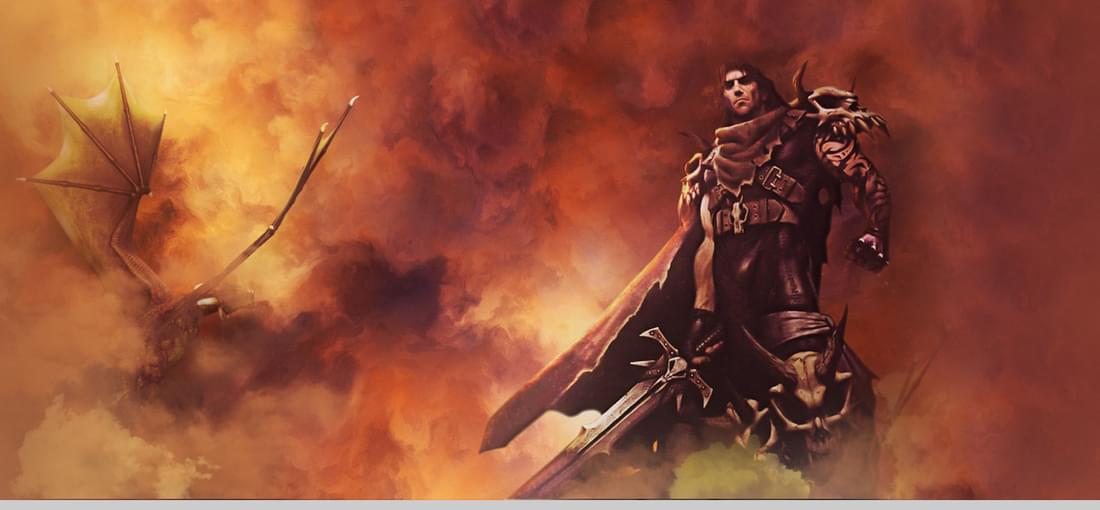
If you read my reviews for some, RPG titles here, on GOG, you may remember that I have strict rules that determine what makes an "RPG game": the ability to shape my own character, actual influence on the development of the plot and AT LEAST decent writing. Due to these requirements, I never considered JRPGies or hack&slash games as RPGies. Because of this policy I also cannot put "Revenant" in that category; the game was developed by Eidos (guys behind original "Tomb Raider" titles), which automatically made me skeptical regarding it being actual RPG, but a back in the day a friend of mine had it on CD and I was anxious to give it a try. The overall effect this game had on me was... rather mixed. Lets start with the fact that at first glance "Revenant" seems awesome; it is hack&slash in vein of "Diablo", but Eidos really did intend to do something "more" with it than mindless annihilation of everything that moves. The premise alone is rather complex, for hack&slash anyway. See, you start the game as Locke - a man brought back to life by a powerful wizard Sardock in order to assist Ahkuilon in their current problem, which is the cult called "Children of the Change". Locke has no memory of his previous life and must relearn all he knew, but at his time he was a great warrior and a powerful sorceror, which gives some basis as to why he was chosen. Over the course of the story you're given hints to your past and slowly uncover the full story behind yourself... as well as Ahkuilon's current troubles. The premise promises an intriguing story, especially if you consider "Planescape: Torment" arrived roughly at the same time and with its story having a similar premise, it remains one of the most entertaining tale on PC to date. Locke isn't a silent protagonist either - he can strike conversations with various characters and the player can choose his responses, deciding whether he wants the titular revenant to act like a d**k or be more understanding. Much like with "Diablo", you can free-roam the world and while it's not randomly generated (not to my knowledge anyway) it is pretty vast with Misthaven, your "base of operations" being closer in size to Baldur's Gate or, at least, Lut Golein from the second DIablo rather than Tristram of the original, Blizzard's hack&slash. The system itself is also pretty interesting with Locke being able to use both melee and magic. The former is executed through various attacks, which Locke can learn in a dojo; with new levels you can learn new combos and implement them in your travels, but you need to be careful as combos burn your stamina and, once your run out of it, Locke's movements become sluggish. Stamina regenerates relatively quickly, but running out of steam in the middle of a fight is something you DO wish to avoid. The magic system is kinda similar to crafting, which has grown pretty popular nowadays - see, in order to cast a spell, you must discover its ingredience first. Those ingredience are special symbols (amulets or something like that... I forgot ^^') that, arranged in the right sequence, give you a specific spell. Of course to cast more powerful spells, you need the right level of ability, but the search and discovery of spells is a pretty fun process. The game also provides you with many different NPCs (some are actually playable in multiplayer) that have varying personalities and motivations. The enviroment is beautiful and shows a decent amount of diversity to keep the exploration entertaining. Your equipment is also given a pretty big deal of thought. Everything point to the fact that "Revenant" is gonna be big... But than you get past the halfway point of the game and it turns terrible... For all its good ideas, the execution leaves some things to be desired and in some cases it is just poorly done altogether; the mystery behind Locke's previous life feels great at start - it is always fun to uncover stuff on your own, but the truth is that, at certain point, it just isn't anything particularly memorable or even interesting. It ties to the main plot somewhat, but the resolution is very unsatifying and the main tale, what sense it makes, is rather predictable. The premise that you can pick your responses lets you believe you have some influence on the said plot, but honestly you don't - much like in JRPGies, any reply that you'll have Locke use will ultimately lead to the exact same conclusion. Some cosmetic difference can be spotted, but there is NOTHING that really has an impact. This makes you think what is the point of dialogue choices to begin with. The battle syste, possibly the games biggest asset in hindsight, could also use much polish - its general concept is really fun, but you quickly realize that it's unbalanced. Your stamina runs out quickly, making the use of combos relatively scarse and some spells are VERY visibly more powerful than others to the point that you don't feel the need to use more than two or three at any section of the game. Add to this that Locke has many abilities in which he can invest his points, despite a big chunk of them being VIRTUALLY useless and you end up with the feeling of "quantity over quality". It also doesn't help that alongside its linear nature, the game also has a singular route of development the character should take to complete it: there is a point, halfway through the story, where you are forced to fight a relatively demending opponent with your fist ONLY! If you don't have the proper statistics developed, you simply CANNOT proceed further in the game. There is no alternative to this fight, no other way to beat it - you MUST win "fair and square" with your fists. The NPCs start out fun... but when neither brings anything to the actual single player campaign (all the adventurers are available in multiplayer only, which feels like a big "f**k you" for those playing single player mode) and aside your giving occasional quests (pretty much all are obligatory to complete the game anyway), they have no impact on the plot. To make things worse, the game just stops trying to keep you entertained after a certain point - dungeons become ridiculously large and complex, which will only push you to use walkthroughs as you get sick of searching for that one tunnel you missed... you know, the one that leads you FURTHER into the game. This is most evident in the final stages of the story, where you literally make your way through physically ideantical mazes, the only visible difference between them being their color. That is just lazy beyond belief. Overall playing through the entirety of "Revenant" will most likely leave you thinking "what the hell happened?" How could something that started out so great and gave promise for a lot of entertainment see such a drastic drop in quality halfway through? It's premise, story, ideals - all provided a chance for a very memorable game, possibly even something that could really make "Diablo" run for its money. But, in the end, Eidos' title is destined to be "just another hack&slash" with nothing executed well-enough to set it aside from countless other representatives of its genre. Should you buy it? That's actually a tough question; if you like hack&slash games simply because you like to kill monsters, than the beginning of "Revenant" is gonna be hard for you, cause in its early stage the game is more story driven, more in vein to actual RPGies... but if you're searching for the depth RPGies should provide, about halfway through you'll be disappointed as well, because the execution of the plot turns horrid... I mean REALLY HORRID. Under some big discount, "Revenant" is worth a shot, just to see "what could've been", but as it is, I don't see how it can keep players entertained throughout its entirety, as it simply feels the game itself couldn't decide what it wanted to be like.
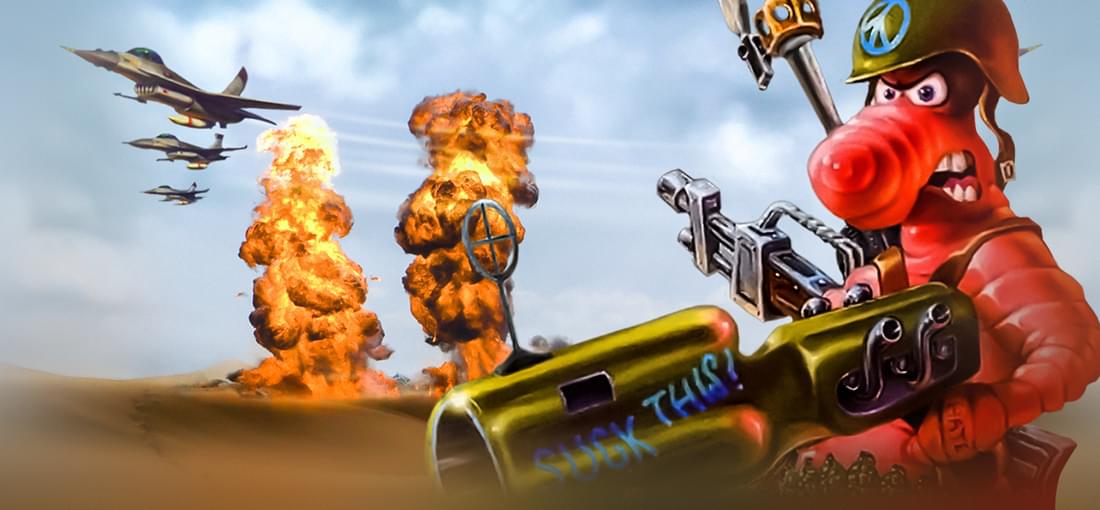
I wasn't gonna write a review for this, but seeing the review section I've decided it is needed, just to give anyone who ISN'T a Worms fan yet (and I do mean "yet" ;)) a clear understanding just what the heck is going on here. First of all: what is "Worms"? Well, this and virtually every other title in the series is a MULTIPLAYER (there are single-player modes, but they are NOT why you buy these games) game that allows friends to sit down to it (either online or via hotseat) and blast each other with bazookas, granades, mines, dynamite, bananas... wait, what? It's true - for all the "carnage", Worms series always took a more comedic approach to violance with its cartoonish graphic, ridiculous sound and wacky arsenal. So yes - you have your average uzi, flamethrowers etc., but you can also smash your opponents with old women, mad cows or even holy hand granades. The gameplay is turn-based and (for the most part) highly customizable, so you can adjust most aspects to your liking like round time, number of rounds, the length of a turn etc. And that's really all you need to know about "Worms" as a series... maybe with the addition that I have NOT met a person who played the game in multiplayer and have not enjoyed it. The original "Worms" started it all and pretty much every title that followed used that same formula... but most of them added to it. This is why I cannot agree with the claims of many reviewers that this is "the best Worms game ever", because nearly ANY other installment in the series offers AT LEAST the same amount of fun, but a greater variety of custimization. Yes, for the sake of minimalism, "Worms United" is sufficient, but realize that further Worms titles allow up to 6 players to play a single game (United is maxed out on 4), provides with a greater amount of option to make your team more unique (aside from naming it and every worm within, you can choose flags, hats, even forts in some versions... and voice packs; so many voice packs :D) and give you a much greater control over HOW you want the match to the arranged. "Worms United" falls short compared to later titles in LITERALLY every one of these categories. Plus the graphics of the original Worms have not aged that well, while the one used for later, 2D titles are pretty much timeless and look just as good as they did back in the day. To sum up: "Worms United" IS still a VERY GOOD game, make no mistake about it... but if you wanna start you adventure with the series and have no nostalgia for it from the early days, than pretty much any other title available on GOG (Worms Forts being the exception) is a much BETTER choice in my opinion. Particularly "Armageddon" (the pinnacle of the series, as most fans would claim) and "World Party" (basically "Armageddon" but with greater customization within the game) are a much more worthy entries. "W.M.D." (which offer most changes to the gameplay since "Worms 2") could be considered an "modern-day Worms" and is pretty good (though, personally, I still like Armageddon and World Party better) and "Worms 2" is a decent transition between this and "Armageddon". And if you have a different Worms 2D game in your library, there's EXTREMELY little point of buying "Worms United", unless you want a full collection. Plus, at the current price (around 5$ as of this writing), I find it to be pretty high, especially since you can have "Armageddon" for not much more. Also of note is that both "Armageddon" and "World Party" receive fan-made content (voice packs and maps mostly) even to THIS DAY. That is saying something.
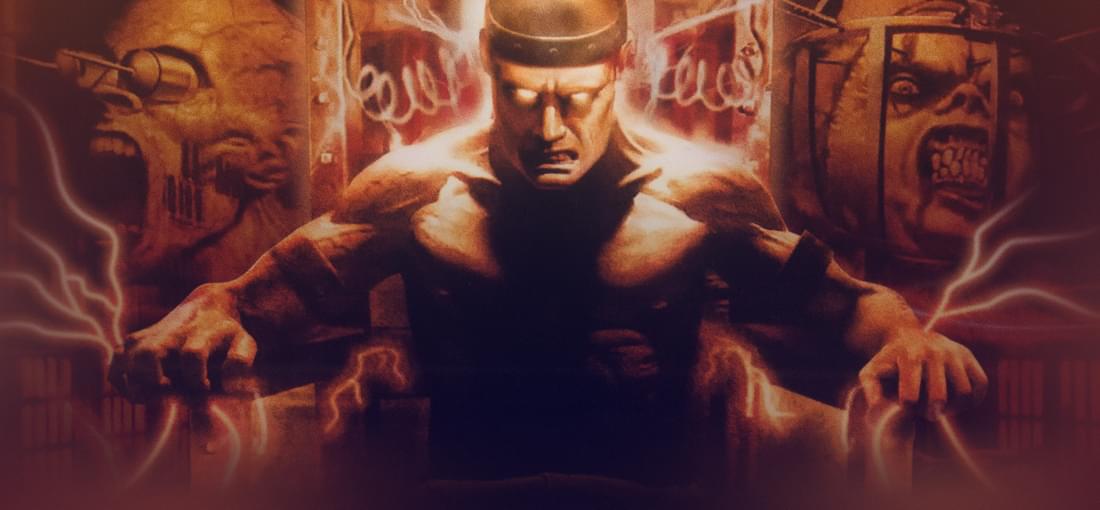
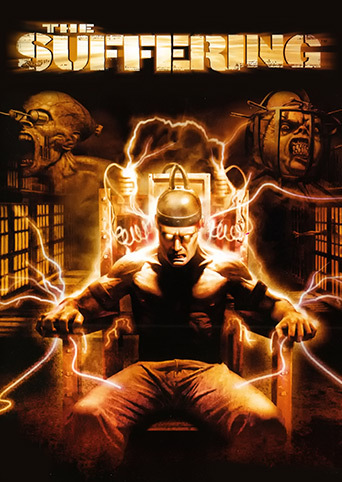
Horror games never were my cup of tea, but despite what the title and screenshots may suggest to you, "The Suffering" is more of an action game than actual horror - there are no jumpscares and the psychological approach is far from the level achieved by games such as "F.E.A.R.", for example. None the less, the atmosphere is nicely implemented and the game itself provides a few interesting mechanics to keep itself interesting, avoiding the bane of many action games: repetitiveness. The story is relatively simple: you're Torque, a convict of death row for murdering his wife and children. You couldn't even properly defend yourself as, during the time of killing, you had a black out. As you enter your cell, an earthquake errupts and soon your inmates are attacked by strange creatures. Using the chaos, you escape your cell and attempt to find a way off the island, upon which the prison is located. Sadly that is not an easy task and the island itself is not exactly what it appears to be - there are secrets, which few are aware of and uncovering them might help Torque find answers of his own. While the game starts as survival horror, it quickly switches to action, providing player with many weapons with which to fight enemies, who commonly are monsters that are, essentially, personifications of various ways US law enforcement executes the death penalty. This provides a disturbing yet unique collection of opponents, each requiring you to take a slightly different approach to handle them. The game allows free exploration of the island (provided you'll manage to find a way to get someplace) and introduces an interesting morality system (note that this is before games such as "Walking Dead" and the like, so at the time it was fairly fresh) when you're commonly given a choice and voices in your head try to sway you to one action or the other. Depending on these choices, you'll reach one of three endings in your playthrough. These choices also affect the gaming experience as you may gain allies to assist you or make enemies. It helps the game's replay value as the story, while intriguing, could've been done better. The action itself is good and the provided ability to transform (best you discover that yourself) adds to a more diverse sequences. Overall "The Suffering" is a relatively unique mix that provides you with a good action game in a horror setting (though don't expect to get scared often) and utilizes VERY BASIC RPG elements that allows you to affect the plot and shape your own protagonist (to me, that's always a plus and, in that regard, The Suffering feels more like and RPG than most of the so-called JRPGies). With a decent story, it should provide you with a nice, casual entertainment for a few evenings and you can always play it again, to see how the game changes, based on your actions. While it isn't my genre, as far as action games go, "The Suffering" is among the best I played, alongside the first two "Max Payne" installments or the original "Nightmare Creatures", trying to captivate you with the story like the former and providing atmosphere not dissimilar to the latter.